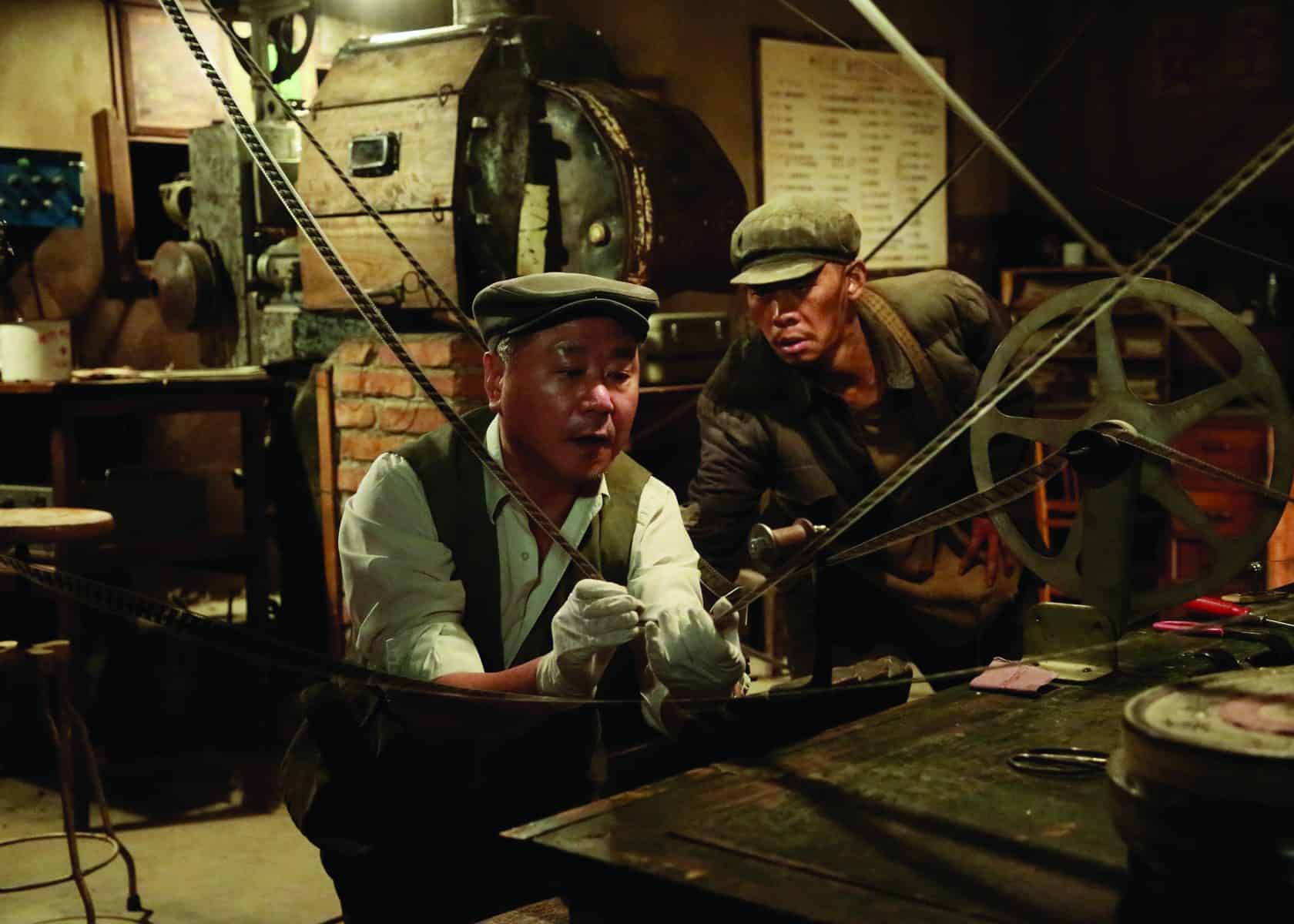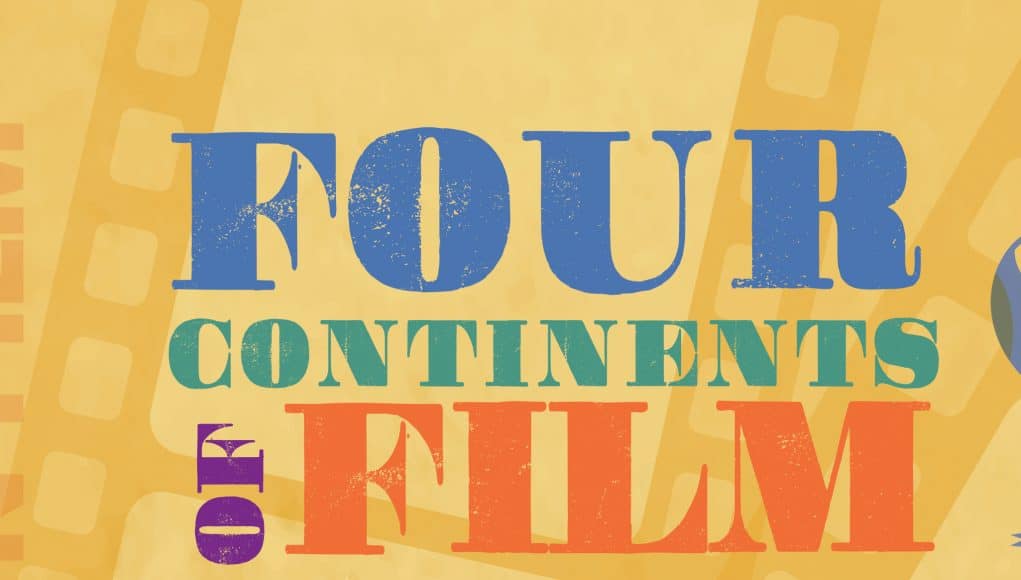by Rebecca M. Alvin
The Provincetown International Film Festival(PIFF) has brought cinematic excellence to Provincetown and the Outer Cape every year, without fail, since 1999. Even during that first surreal year of the pandemic, the Festival managed to stay true to its mission, bringing us a reimagined version, scaled down, virtual, and safe. But the works the Festival chooses are never safe. On the contrary, just as the name of its cornerstone feature, The Filmmaker on the Edge Award, suggests, this is a film festival that celebrates testing limits, pushing boundaries, and works by and about marginalized people of all kinds. But it’s important to also recognize in addition to these important, unique qualities, this is the Cape’s only international film festival. It’s very much a part of its mission to bring to us voices from around the world, something that’s not often commented upon.
This year is no different in that regard, with films by filmmakers around the world, conveying the particular concerns and ideas from their own cultures through cinematic language, including short-form and feature-length, live action and animated, documentary, fiction, and hybrid forms. There are too many examples to cite, however, there are a number of works of world cinema that might slip under the radar and not be noticed with so many higher profile films to pay attention to. The films chosen to spotlight here are not connected thematically, stylistically, or formally. They are from four continents: Europe, South America, Asia, and North America. They are connected only by characters and stories that reflect how problematic histories are reflected in the present, drawing our attention to power dynamics, violence, intolerance, gender roles, colonialism, and racism, each with its own particular cultural references, but united in an unspoken plea for something better for our collective future.
For full schedule information and tickets to these and other films at the 24th Annual Provincetown International Film Festival, go to the Festival box office at Provincetown Commons, 46 Bradford St. or visit provincetownfilm.org/festival.
Klondike (Ukraine)

Certainly, the Russian invasion of Ukraine earlier this year has been on the minds of many, and there are various fundraisers, performances, and exhibitions to raise awareness and funds for the besieged Ukrainian people. But the tensions with Russia go back many years. The film Klondike is set in 2014 during the War in Donbas involving Russian and pro-Russian separatists in the Donetsk and Luhansk regions along the Russia-Ukraine border. But it is less about the conflict itself than it is about the inhumanity and painful indifference to human suffering that armed conflict inevitably gives rise to. A couple Irka (Oxana Cherkashyna) and Tolik (Sergiy Shadrin) live in the region. Irka is in her third trimester of pregnancy for their first child but refuses to flee and leave their home behind for a safer location, despite her brother Yaryk’s (Oleg Scherbina) insistence. The couple are forced to support the separatists who enter their home whenever they like and request to be fed. The husband-and-wife dynamic is really the focus, although the stresses of their external circumstances force confrontations and disappointments that might otherwise be manageable. Irka’s strength and Tolik’s confusion seem representative of broader gender issues in Ukrainian society. The use of a pregnant woman has long been a tactic in filmmaking to bring a certain tension that is hard to invoke any other way. Certainly, in this film, Irka’s condition does accomplish this, but it is in the final 10 minutes of the film that it becomes almost unbearable to see the cruelty inflicted upon her simply by the militia’s lack of concern for her. It is an excellent film to remind us of what war does to our world, from whole nations down to the average individual simply trying to live. Showing at Waters Edge Cinema on Thursday, June 16, 2 p.m. and Friday, June 17, 9:30 p.m.
The Territory (Brazil)

In this documentary, we are taken into the rainforest in Brazil to spend time on the frontlines of a battle for the environment, a way of life, and again, preservation of humanity for all involved. In a situation reminiscent of the U.S.’s westward expansion of the 1800s, despite tacit laws to protect indigenous lands, hordes of frontiersmen illegally invade the lands of the Uru-eu-wau-wau people, slashing and burning everything in their way. Close behind them are the settlers who wish to stake out their own territories to build new communities or even cities at the expense of one of Earth’s greatest resources, the Amazon.
As a National Geographic film, The Territory is filled with stunning up-close images of insects, plants, and animal life. All sides of the story are presented, although we are primarily focused on the Uru-eu-wau-wau and their new young tribal leader Bitaté who, at 18 years old, assumes the leadership position with a great vision for how to combat these invaders when they are so sorely outnumbered and outgunned. His plan is to use cameras as their weapons more than the traditional bow and arrow or spear. Although anxiously aware of his own inexperience, he shrewdly begins to document everything and get it out to an international audience in order to get the support that President Bolsanaro’s government will not give. Aided by a dedicated environmental activist Neidinha Bandeira, who received death threats on a daily basis, the Uru-eu-wau-wau work to protect their land, their way of life, their ability to survive in the face of total indifference from their fellow Brazilians. Directed by American Alex Pritz, the film includes footage shot by the Uru-eu-wau-wau themselves, adding an important cultural dimension to the storytelling process. It is at once a horrifying portrait of theft, greed, and inhumanity and an inspiring story of perseverance, ingenuity, and the possibility of a different kind of world. Showing at Waters Edge Cinema only on Friday, June 17, 2 p.m.
One Second (China)

A different kind of story comes to us from Chinese master filmmaker Zhang Yimou (Red Sorghum, Raise the Red Lantern), who also demonstrates the power of film in this drama set during the Cultural Revolution. A fugitive (Zhang Yi) who has escaped from a labor camp and traveled a long way in order to catch a glimpse of his daughter, whom he has not seen in six years, but who he’s been told appears in a newsreel that is traveling the movie exhibition circuit in the area. He steals the film in order to have it shown by Mr. Movie (Fan Wei), but is continuously sabotaged by a poor young girl known only as “Orphan Liu” (Liu Haocun) who is caring for her younger brother. The love-hate relationship between the fugitive and the orphan has comic dimensions that keep this film from being too dark, but it is another example, from an entirely different cultural context, of the impact of political and military conflicts on ordinary people. Yimou lovingly depicts the cinema as a source of joy for Mr. Movie’s community, who all eagerly await each screening. When the film is damaged, he enlists his audience to work together to clean and restore the damaged celluloid in an epic group effort. But more than anything, it is Yimou’s exquisite visual sense that makes this film astonishing. Yimou came to directing through cinematography, and it’s clear from this and all of his other films, which are strikingly beautiful. Showing at Art House on Wednesday, June 15, 7 p.m. and Sunday, June 19, 6:30 p.m.
Beba (U.S.)

And finally, there is a contribution from the United States, Rebeca Huntt’s stunning memoir documentary Beba. Huntt tells her personal story of growing up in New York City, the child of a Dominican father and Venezuelan mother, who opted to move the family from their Bedford-Stuyvesant slum to a one-bedroom apartment in Manhattan, near Central Park, when Huntt, “Beba” was very young. Her brother, sister, parents, and her managed to live together in the small space because it was presumed to be better than being in an unsafe neighborhood as Bed-Stuy was in the 1980s. This self-portrait examines not only the complicated family dynamics, but also the director’s own struggles with rage—the rage that comes from knowing your past as an Afro-Latina and going through the continuation of those past struggles in contemporary postcolonial times. Huntt was able to get an excellent education and her parents, we see, did their very best for their children, however, there are deep roots of discontent, restlessness, and sorrow that culminate in bouts of rage and self-sabotage, which Huntt documents through her own narration, interviews with the people closest to her, and video of encounters with friends that demonstrate a self-awareness that is so essential to memoir. This is an engaging, well-written personal documentary that explores the many dimensions of race, class, privilege, and multiculturalism in contemporary America. Huntt never presents herself as pure victim or as heroine. She is a flawed human being living in a flawed society, and this understanding makes Beba such an honest and compelling film. Showing at Waters Edge Cinema on Thursday, June 16, 9:30 p.m. and Sunday, June 19, 4:30 p.m.











